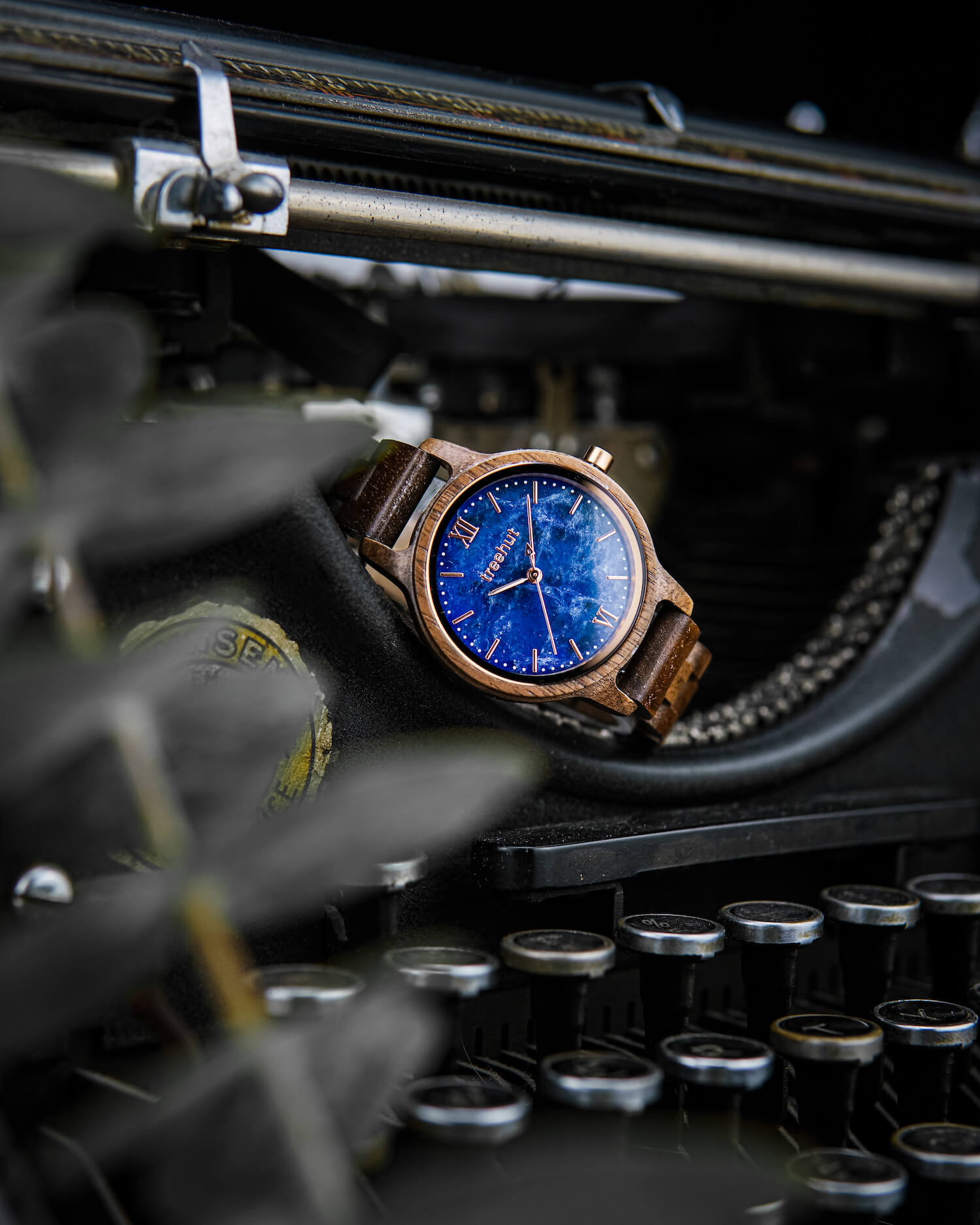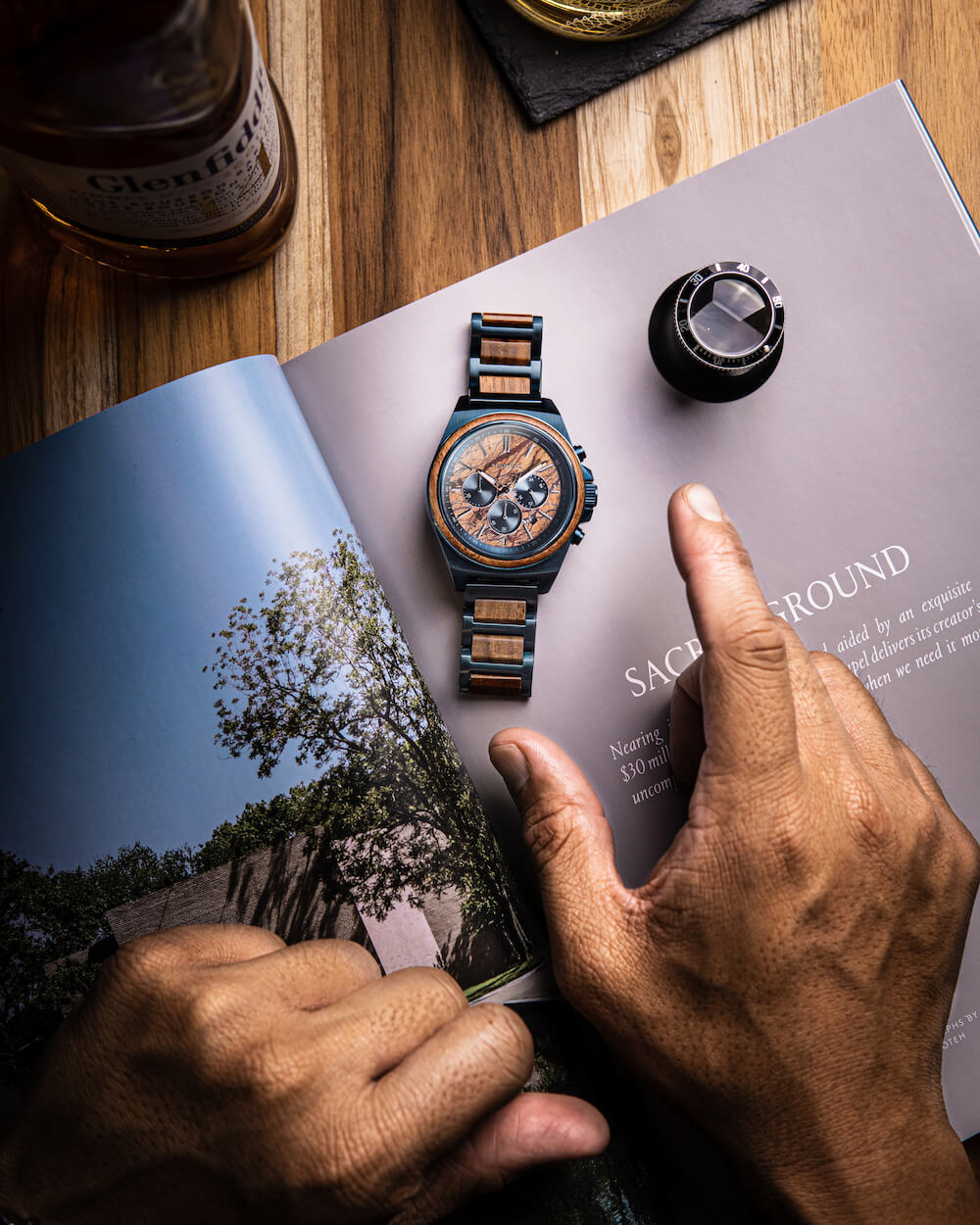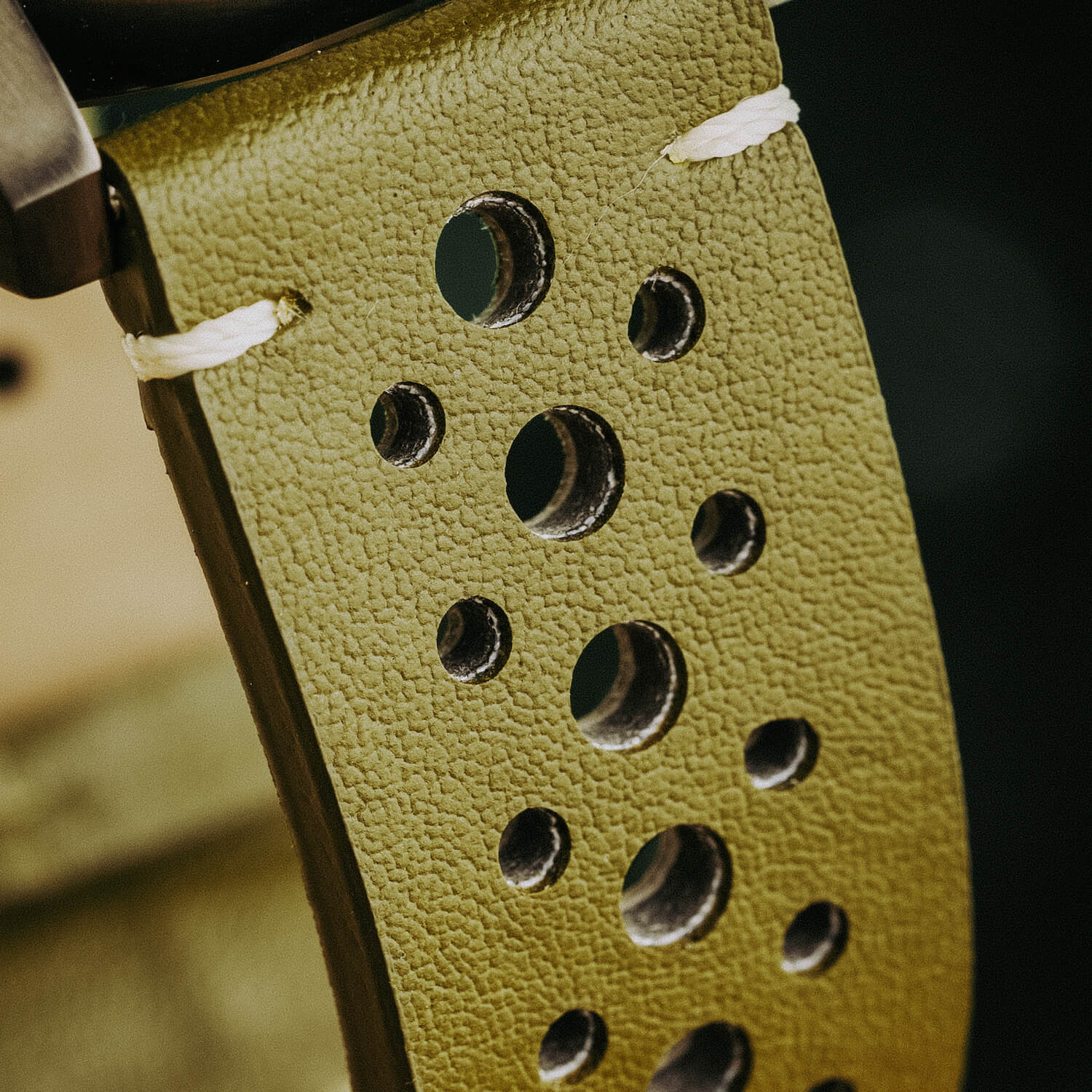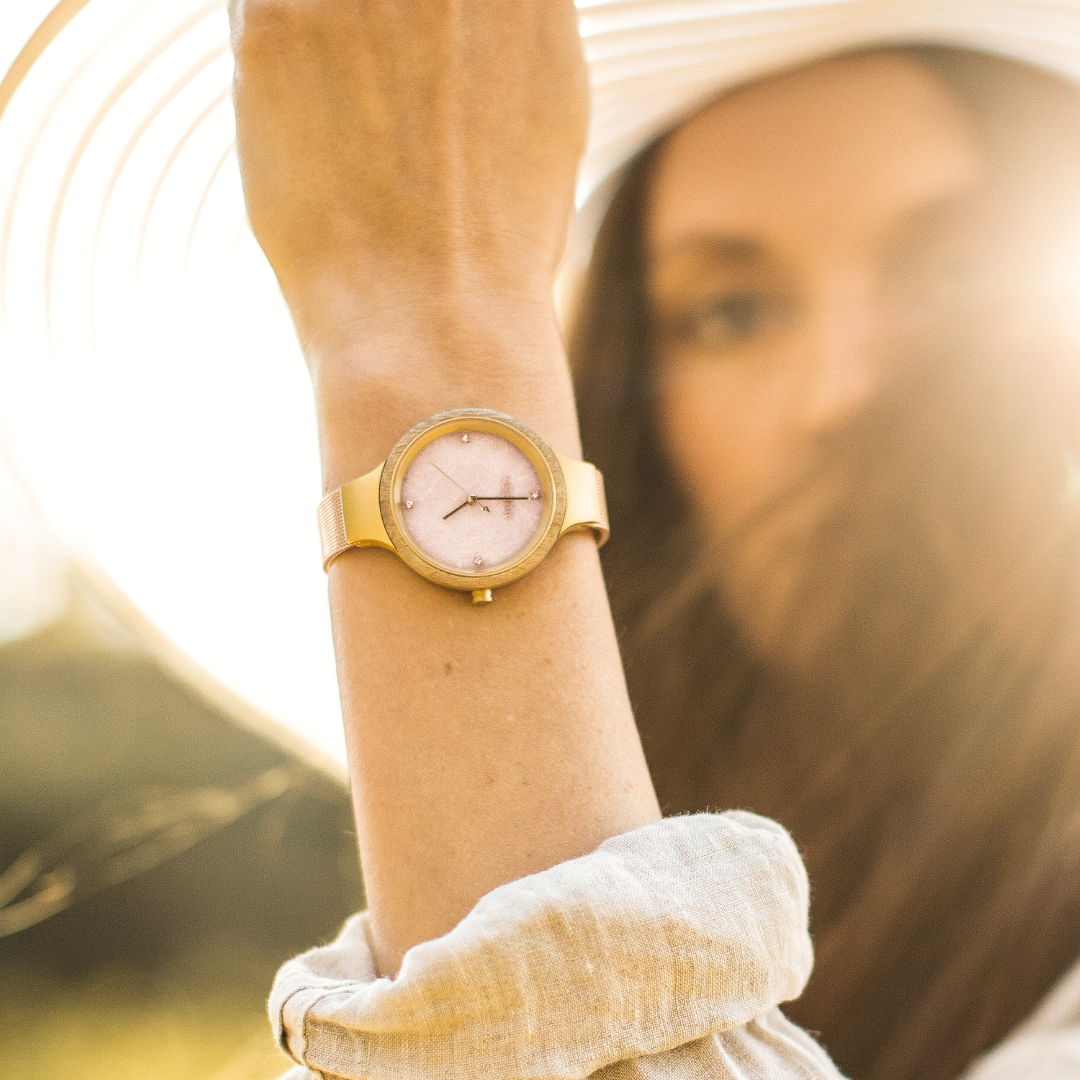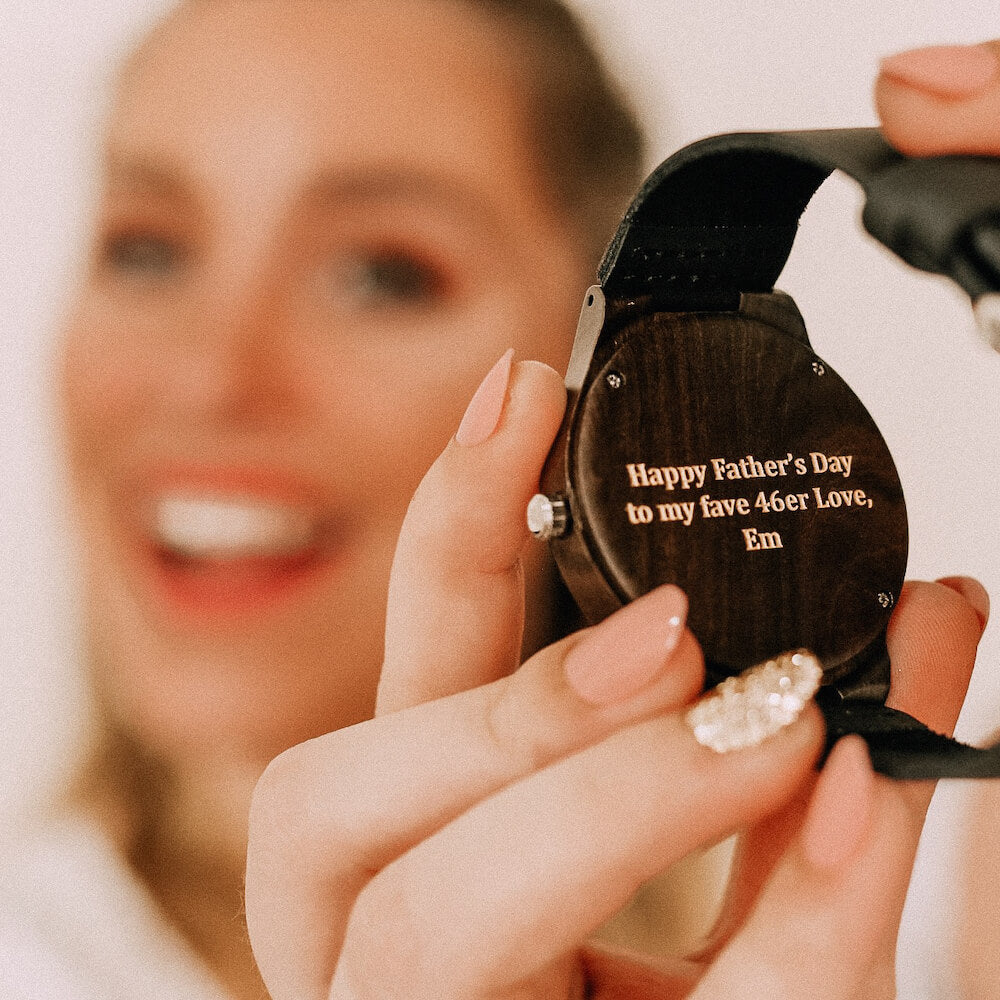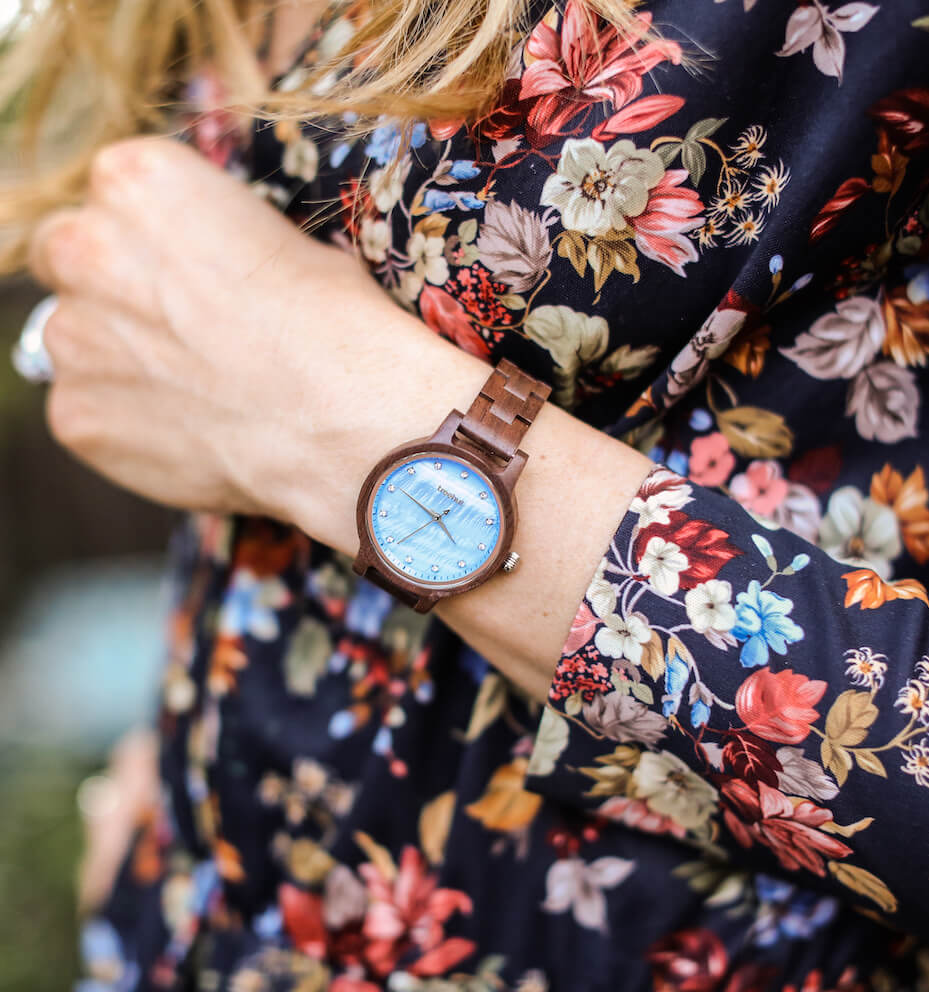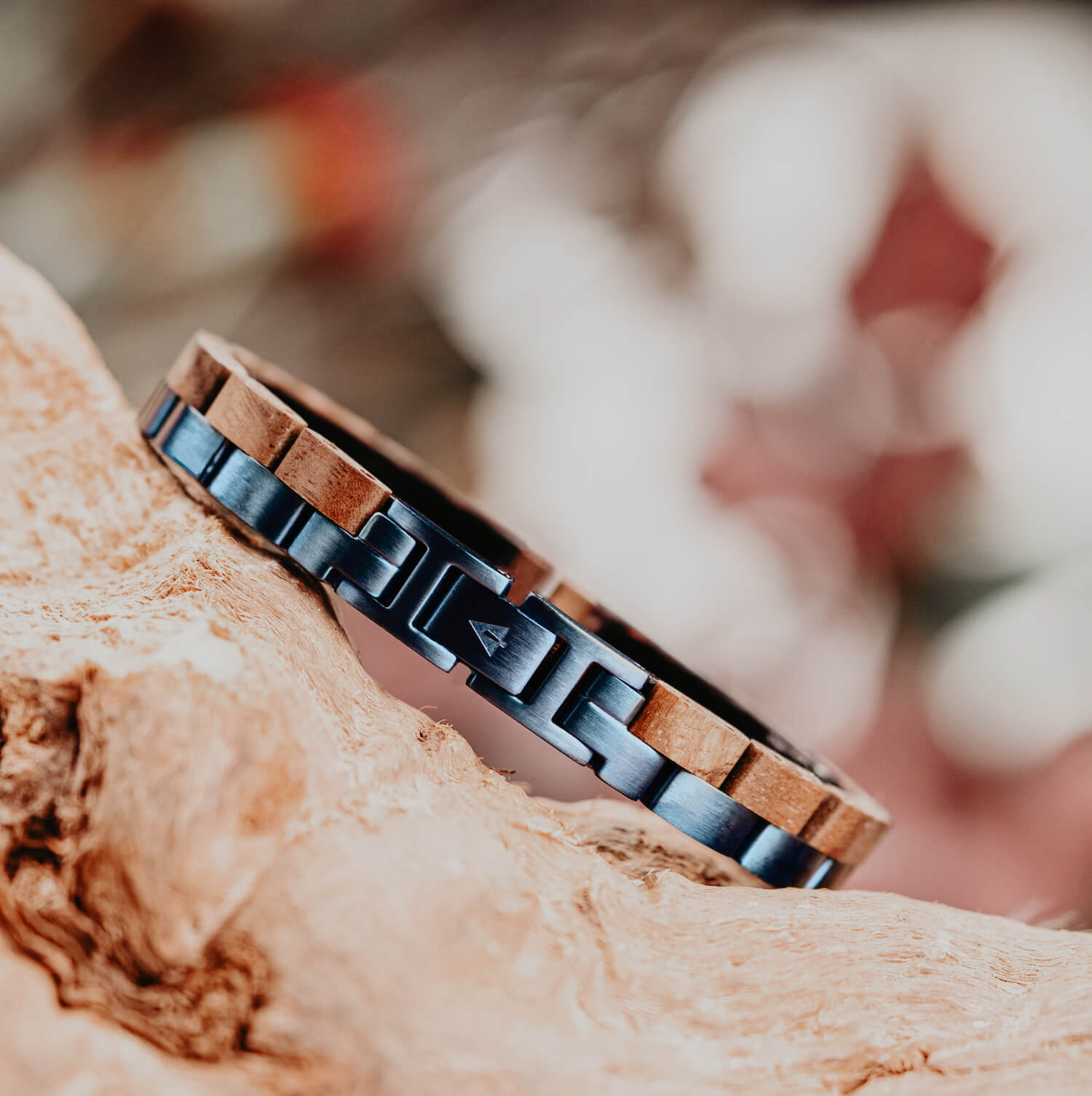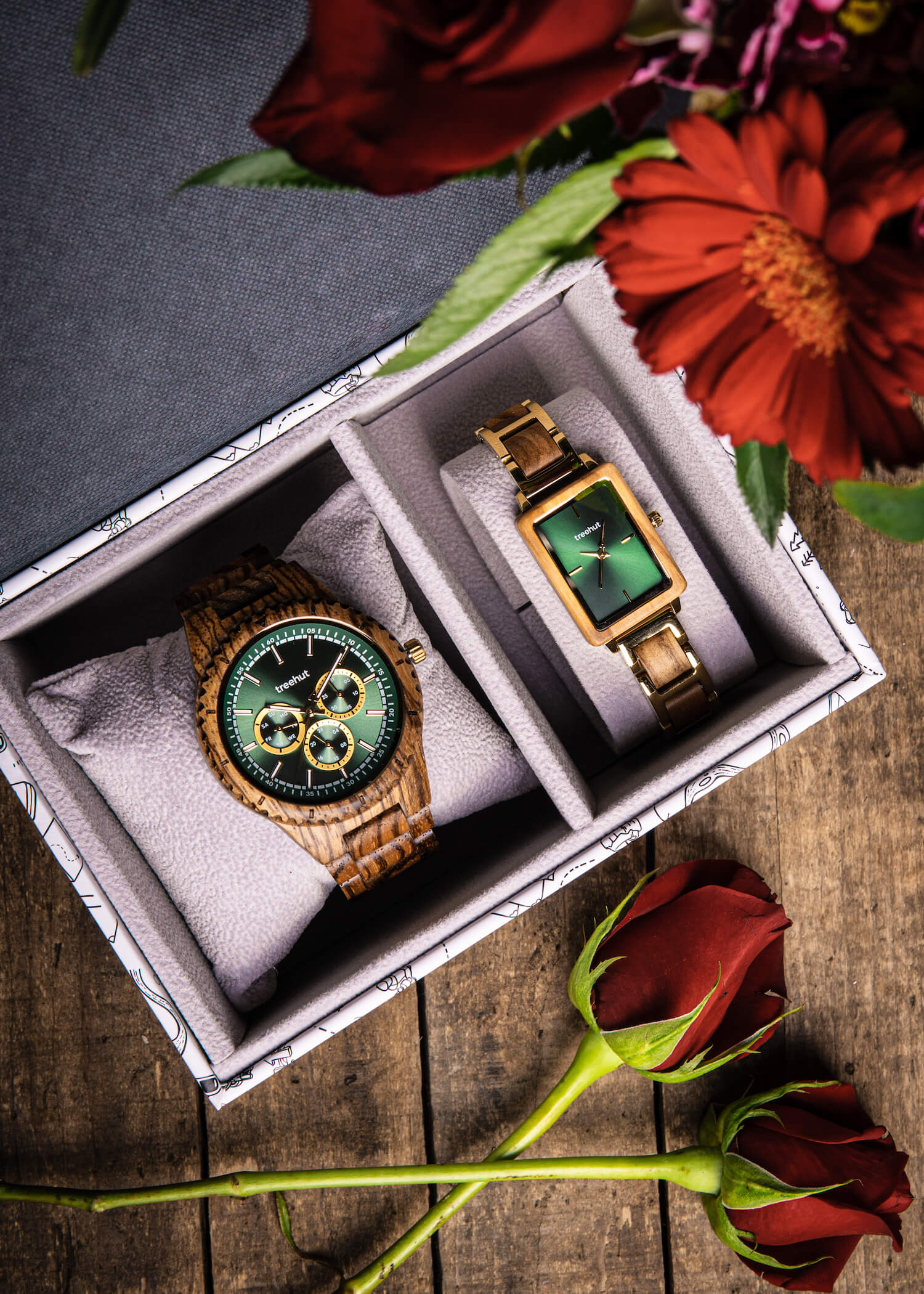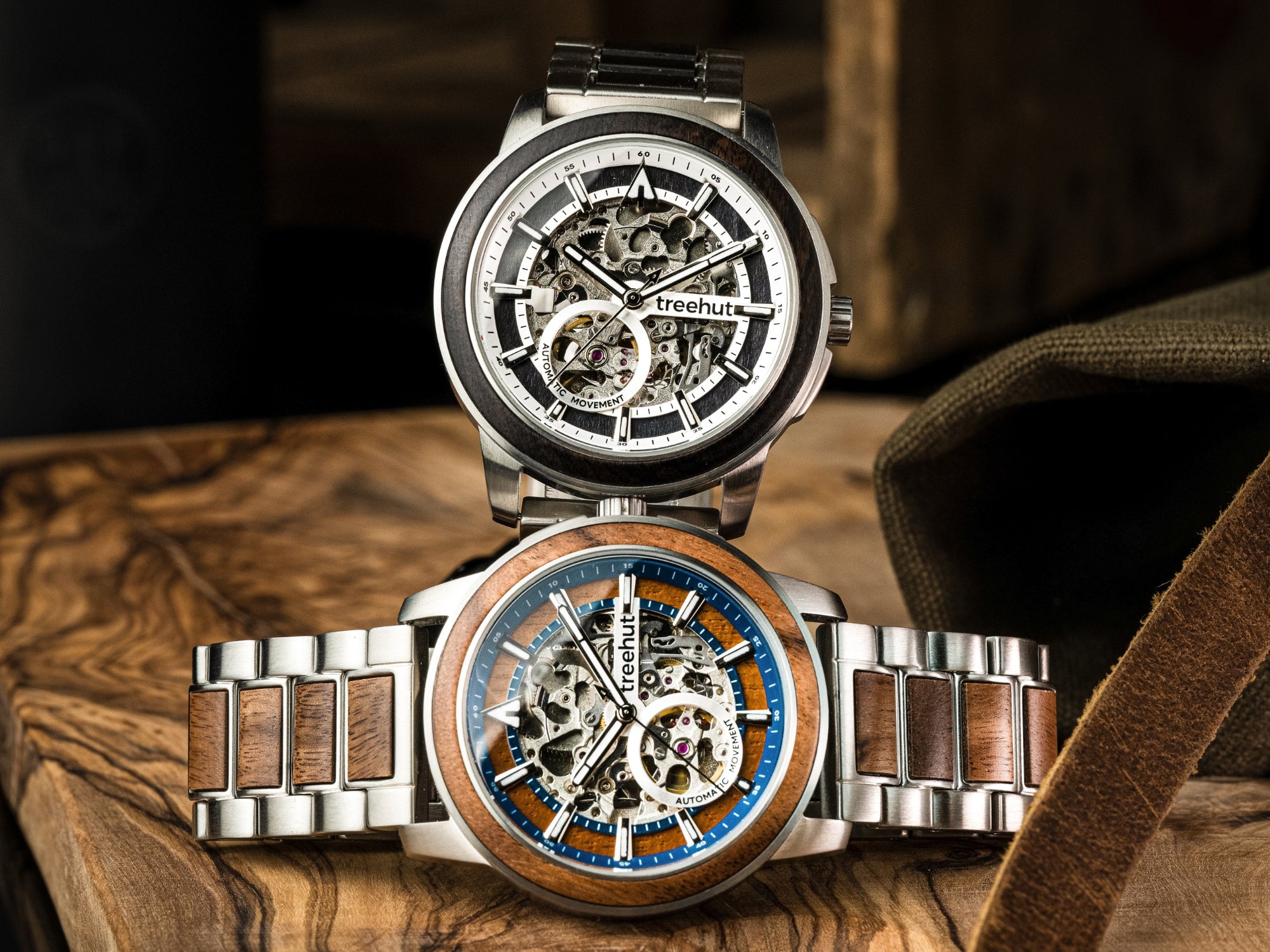Do you prefer a sporty vibe or something classy? An accessory for work or social events? We know that choosing the right watch can be hard, which is why we have prepared a detailed guide on chronograph vs. automatic watches to help you pick whichever fits your style, taste, and lifestyle.
Key Differences Between Chronograph & Automatic Watches
|
Feature |
Automatic Watches |
Chronograph Watches |
|
Primary Function |
Watch with self-winding mechanism |
Watch with stopwatch functions |
|
Mechanism |
Powered by the movement of the wearer’s wrist and mechanical gears |
Features sub-dials and pushers for timekeeping |
|
Accuracy |
Can vary slightly due to mechanical movements |
Generally more accurate |
|
Design Elements |
Often showcases the inner mechanisms through a transparent back |
Designed with extra features, such as multiple sub-dials, pushers, and scales |
|
Style |
Classic style; suitable for everyday wear and formal occasions |
Sporty style; ideal for specific activities and professional environments where precise timing is required |
What Is a Chronograph Watch?

In layman’s terms, a chronograph is a watch that can also be used as a stopwatch. It literally translates to ‘time writer’ in Greek and was invented in the 17th century by a French clockmaker named Louis Moinet to track astronomical movements. Since then, it has evolved to become the ultimate tool watch, measuring elapsed time and offering additional features. Typically, it has multiple sub-dials that display elapsed time in different increments, like seconds, minutes, and hours. There are two pushers on the side that can be used to start, stop, and reset the stopwatch function.
Pros of Chronograph Watches

All the Extra Features
When comparing chronograph vs. automatic watches in terms of functionality, the former is a clear winner. They also offer features beyond just timekeeping. For instance, a tachymeter lets you calculate speed, whereas a telemeter lets you work out the distance. Most models include a date function, and some even have a pulsometer that counts the number of heartbeats within a specified time frame. While it is true that a smartwatch has pretty much the same functionalities as well, it cannot beat the craftsmanship and appeal of a chronograph watch.
Versatile for Every Task
While chronograph watches have mostly been used by sailors, pilots, scientists, and engineers in the past, you can also use them for daily activities, such as timing sports activities, business meetings, or workouts.
Combines Form & Function
Just because they are better in terms of performance, it does not mean that chronographs skip on style. They stand out from the usual bare-faced designs, plus they come in many different styles, making it easy to choose one that suits your preferences. From business suits to casual wear, they complement any outfit.
Cons of Chronograph Watches

High Maintenance
There are many reasons to buy chronograph watches, but keep in mind that all the extra functions can be a bit of a hassle when it comes to upkeep. With all those moving parts, they generally require more care when comparing chronograph vs. automatic watches. They can also be much trickier — and costly — to repair if something goes wrong.
Bulky Design
In the differences between chronograph vs. automatic watches, chronographs can be quite large and heavy. Thus, they can be a little uncomfortable to wear all day long, especially if you are used to more lightweight watches. For a more relaxed fit, check out our wooden chronograph watches.
More Complex
Some people may find it difficult to understand the features of chronograph watches, which could prevent them from being used effectively. They are undeniably more complicated when comparing chronograph vs. automatic watches.
What Is an Automatic Watch?

Automatic watches can be traced back to the 18th century, when the Swiss watchmaker Abraham-Louis Perrelet invented the self-winding movement. This means that an automatic watch uses the natural motion of the wearer’s wrist to keep running, eliminating the need for manual winding. A small window or openwork dial reveals the intricate system of gears, springs, and rotors inside, demonstrating the art and mastery of watchmaking like no other timepiece.
Pros of Automatic Watches

No Need for Batteries
The biggest advantage of an automatic watch is that you never have to worry about changing its batteries. The self-winding mechanism not only saves you time and effort, but it also makes the watch a more sustainable choice – especially if you are choosing wooden automatic watches.
Highly Durable
Another key difference between chronograph vs. automatic watches is their longevity — with proper care, the latter can last for generations. In fact, they often become treasured heirlooms due to their craftsmanship and dependability.
Design & Aesthetics
Automatic timepieces are more than just tools for telling time; their exposed mechanical movements also reflect the history of traditional watchmaking. Not only do they make sophisticated accessories, but they add a touch of luxury as well. If you also compare the visual appeal of chronograph vs. automatic watches, the sweeping second hand in automatic watches gives them a much more elegant look.
Cons of Automatic Watches

Accuracy Variations
If you compare chronograph vs. automatic watches, there can be some fluctuations in an automatic timepiece. As it relies on mechanical movements, you might notice that it can be off by a minute or two now and then. Hence, you may need to adjust it regularly to maintain accuracy.
Sensitive to External Elements
Automatic watches are also quite picky about their environment. For instance, they do not handle temperature changes very well, and strong magnetic fields can also mess with their internal workings. How you wear or store your watch also matters — keeping it in certain positions for too long or not moving it around much can slightly throw off its timekeeping.
Power Reserve Limitations
If you do not wear your automatic watch regularly, its power reserve may run out at some point. In that case, you would either need to give it a manual wind or a good shake to get it ticking again.
Chronograph vs. Automatic: Which Should You Choose?

Choosing between chronograph vs. automatic watches basically all comes down to what you want in a watch. If practicality matters more to you, chronograph watches offer much more bang for your buck. You can use it for different kinds of activities, such as tracking cooking times, parking meters, or your morning runs. They are especially useful in certain professions, like for lawyers who bill their time by the hour or race car drivers who need to measure lap times. Whatever you use it for, it will definitely be more reliable if you compare chronograph vs. automatic watches.
If you are a watch collector or a luxury buyer, automatic watches may be a better option if you are choosing between chronograph vs. automatic watches. Their transparent back can literally show you the passage of time, and they can run for decades (if not a lifetime), making them great investment pieces.
Whatever you choose between chronograph vs. automatic watches, you will be getting a timepiece that has its own set of perks.

